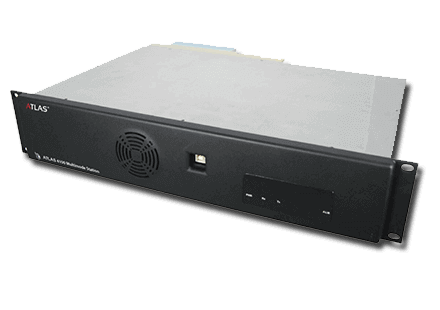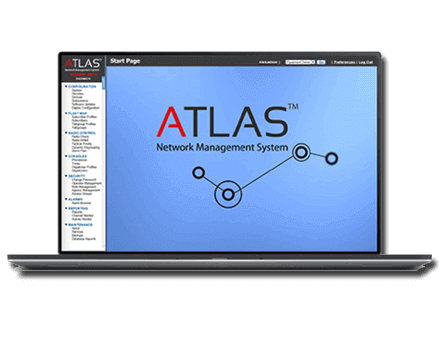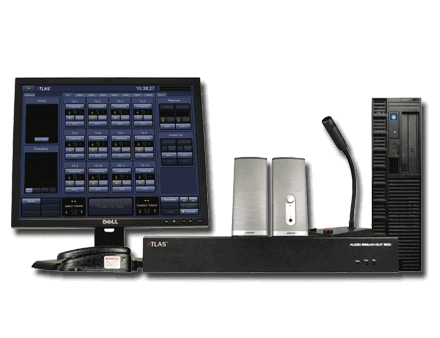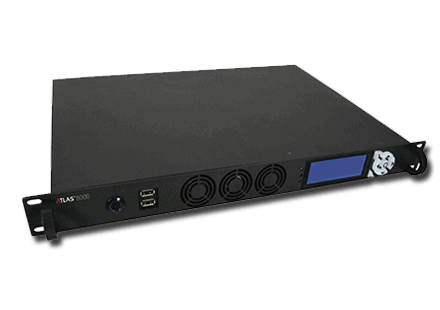Atlas® P25 Systems

EFJohnson Technologies makes your critical communication system safe and simple to use. Its patented Latitude™ technology makes the Atlas® P25 application and transport network distinctive. This enables ATLAS systems to offer increased flexibility as compared with traditional LMR systems in various aspects of its operations.
ATLAS is the Most Modern & Flexible P25 System
Auto-Discovery & Self-Healing Sites
Any new site is automatically configured on the system once it is connected to the network. There is no need to manually reconfigure the existing sites. Each site on the system periodically broadcasts messages to the other sites, indicating its availability to participate in calls. When a new site gets deployed in the system, it immediately begins exchanging messages with the other sites. All sites in the system are aware of all the other sites in the system. Each site also knows which talkgroups every other site is interested in receiving. If a network connection is lost and then reestablished, the system heals itself automatically.
The inter-site communication leverages the power of IP multicast to provide one-to-many and many-to-many communication using a standard IP gateway router. Any site on the ATLAS enabled IP network that is capable of listening or sending voice packets can participate in the talkgroup. Network packets are simultaneously received and processed by all participating sites.
Distributed Call Control
The site initiating a call is responsible for call setup. Once the call is established, the initiating site encodes voice messages with a standard audio CODEC and uses standard IP multicasting to send real-time transport protocol (RTP) voice packets across the network to the other sites.
Simulcast Control
EFJohnson Technologies’ ATLAS simulcast solution has consolidated the traditional hardware elements of the comparator, prime site controller, and wide-area controller functionality into a software application. The ATLAS simulcast solution replicates this functionality at each site.
Simple Business Model
EFJohnson offers a flat pricing model for ATLAS systems. All supported software features are included in the base system offering. There are no additional fees for operational licenses, console features, network management system features, number of user IDs, number of talkgroup IDs, or number of NMS client users.
Adding a channel, a site, a console, or an NMS to a system only requires you to purchase the extra infrastructure equipment—no additional or hidden fees will be charged.
Just Four Basic Components
ATLAS systems consist of just four basic components. By using a common hardware platform to build the system components, the ATLAS solution reduces the need for spares by allowing a single pool of spares across multiple component types. The majority of ATLAS system components are based on commercial-off-the-shelf (COTS) hardware, significantly reducing system obsolescence and extending the life of your critical investment.
The ATLAS system’s minimal space requirements lower risk and add flexibility to co-locating new equipment with existing equipment, mitigating difficult cutover problems and reducing additional shelter costs.





